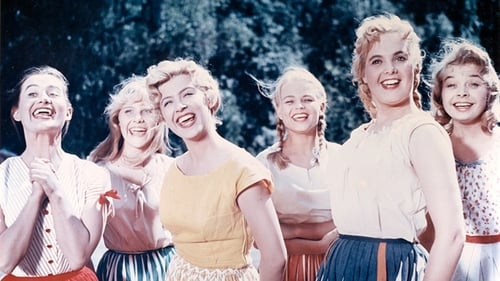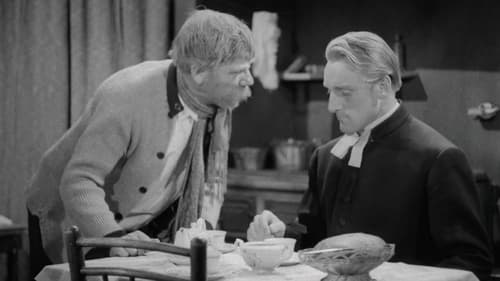Artturi Laakso
Nacimiento : 1893-10-26, Hollola, Finland
Muerte : 1976-09-22

Myllymäki
Täällä Pohjantähden alla is based on the book with the same title. It is a story of the little village. The movie starts in the 1890's and it ends to the Finnish civil war in 1918. Story concentrates around a tenant farmer family, although it gives us a good look at the society at whole. While the class struggle depends, people of the village are driven to bloody civil war.

Toikka
When Continuation War started in Summer 1941, German soldiers arrived to Oulu. With their charm they conquered women and town boys. Finnish boys communicated with them on many levels: had trades, worked as interpreters, rotated business, spied on German love adventures and fought with each other about the favor of soldiers. In autumn 1944, the war was ending. Germans left Oulu by leaving behind fragile relationships, bastard kids and unfinished businesses. The most shocking of all was the faith of young Jake...

Dr. Setälä
An uptight all-girl school teacher Leena Kataja stumbles upon a handsome artist Pertti Rinne who paints her face on a nude portrait, much to her chagrin. She is intent on keeping the painting out of circulation by stealing it from an art gallery, but the aftermath turns out to be more complex than she anticipated, leading Leena to become involved in various misunderstandings featuring a gang of criminals, inept cops and false murder charges among other things.

God
The story of the first elections in Finland

Luukas Filemon Koikale, the tailor
A young man arrives in the village. He becomes a miller and delights the girls in the village, which evokes bitterness in others. He is subject to moralistic criticism, even though he is in fact only in love with the tailor's daughter.

Kaarle Niskavuori
The last black-and-white film in the Niskavuori series of movies.

(uncredited)
Pastor Samuel Bro has lost his faith in God. He is in conflict with the Church Council and is rejected from his priesthood. He moves away to a different life.

(uncredited)

(uncredited)
A wide-eyed doll salesman is mistaken for a bomb-wielding anarchist by the oppressive forces of the totalitarian state.

It is a time of extreme housing shortage in Helsinki. People with room in their flats are required either to find subtenants or to lodge anyone sent by the housing commission. Abel and Jussi Siimes, two devoted haters of women, find themselves in this predicament. They need to find a subtenant quickly to avoid the possibility of the housing commission sending a woman, God forbid it, to live with them. Abel's acquaintance, an assessor, recommends his nephew Kaino as the perfect choice.

Johansson
Justina urges Pete and Runt to get a job. As a result they meet an orphan boy named Otto while working as a park nannies. They offer to shelter the boy, but at the same time the father Antti, who has returned from the sea, is looking for his son together with Miss Raikas.

Pharmacist

Arvonen (uncredited)

Arnold Haggren

Kaarlo Niskavuori
Niskavuori's Aarne (Arne från Niskavuori) is a Finnish drama film from 1954. It is based on Hella Wuolijoki's play Niskavuori's Bread. In chronological order of the Niskavuori series, the film is the fourth. Aarne has married Ilona and left the house in Niskavuori, which he hosts, where his former wife Martta still lives, while the old mistress is holding the reins. Aarne and Ilona live in Helsinki, but Aarne has not been able to completely break away from Niskavuori, but keeps secretly in touch with the headmaster and gives instructions on the farm management.

(uncredited)

(uncredited)

(uncredited)
The streets of Helsinki, Finland, at night. Violence mixed with incidents and everyday life. Reported by police officers on the graveyard shift.

Factory owner
Baron Metter is threatening to evict a crofter family from their home. Lauri Vaara a student passing by, falls in love with Marja the family's daughter, and promises to help save their home. Baroness Olivia Metter falls for the young student and helps him with the rescue plan.

(uncredited)
A comedy about a social studies professor opposing a dockworkers strike ending up working at the docks by mistake and having his worldview turn upside down.

(uncredited)

(uncredited)
Two children get involved in the adventure as the bustling caretaker Mrs. Aaltoska and crime reporter "Hawkeye" Lipponen start chasing the mysterious criminal league.

(uncredited)

Th. Fallsten

K. Vilanti (uncredited)
"Youth Astray" - About three young men trying to find a place in society after the war.

Multanen

(uncredited)
Mauri Miettinen and his wife Anja are living in a happy marriage. Everything changes when Mauri's old acquaintance comes to visit and threatens to reveal Anja's dark past.

(uncredited)

(uncredited)
Martha's problem is balancing work and family. According to her husband Juho and father-in-law Kalle, the mother's place is at home with the child and not at work. Only her mother-in-law Ilona encourages Martta to advance in her career.

(uncredited)
Story about about a young man who was raised in an orphanage. Kauko goes to Helsinki to work as a store help. The living the big city is not so easy as Kauko expects and not so grand.

Sniffling Gentleman (uncredited)
The film takes place in the summer and spring of 1940. Isä, the father, gets involved in the stock market and threatens the livelihood of the family.

(uncredited)
A Finnish comedy film from 1940. The third in the "Lapatossu" trilogy.

M.A. Castrén
A poet finds a new muse in young woman.

(uncredited)

Policeman blowing a whistle
In 1916, Finland is still a part of Russian Empire. Eugen Schauman murders the governor of Finland, and his fellow activists take on smaller tasks in the fight for freedom.

(uncredited)

(uncredited)
February Manifesto was Yrjö Norta's and Toivo Särkkä's Finnish movie from 1939. It is a Finnish historical drama about developing independency based on book of the writer Mika Waltari. Movie Starring Tauno Palo and Regina Linnanheimo. For it's anti-soviet thematics it was banned in Finland from 1944 to 1987.

(uncredited)

(uncredited)



















